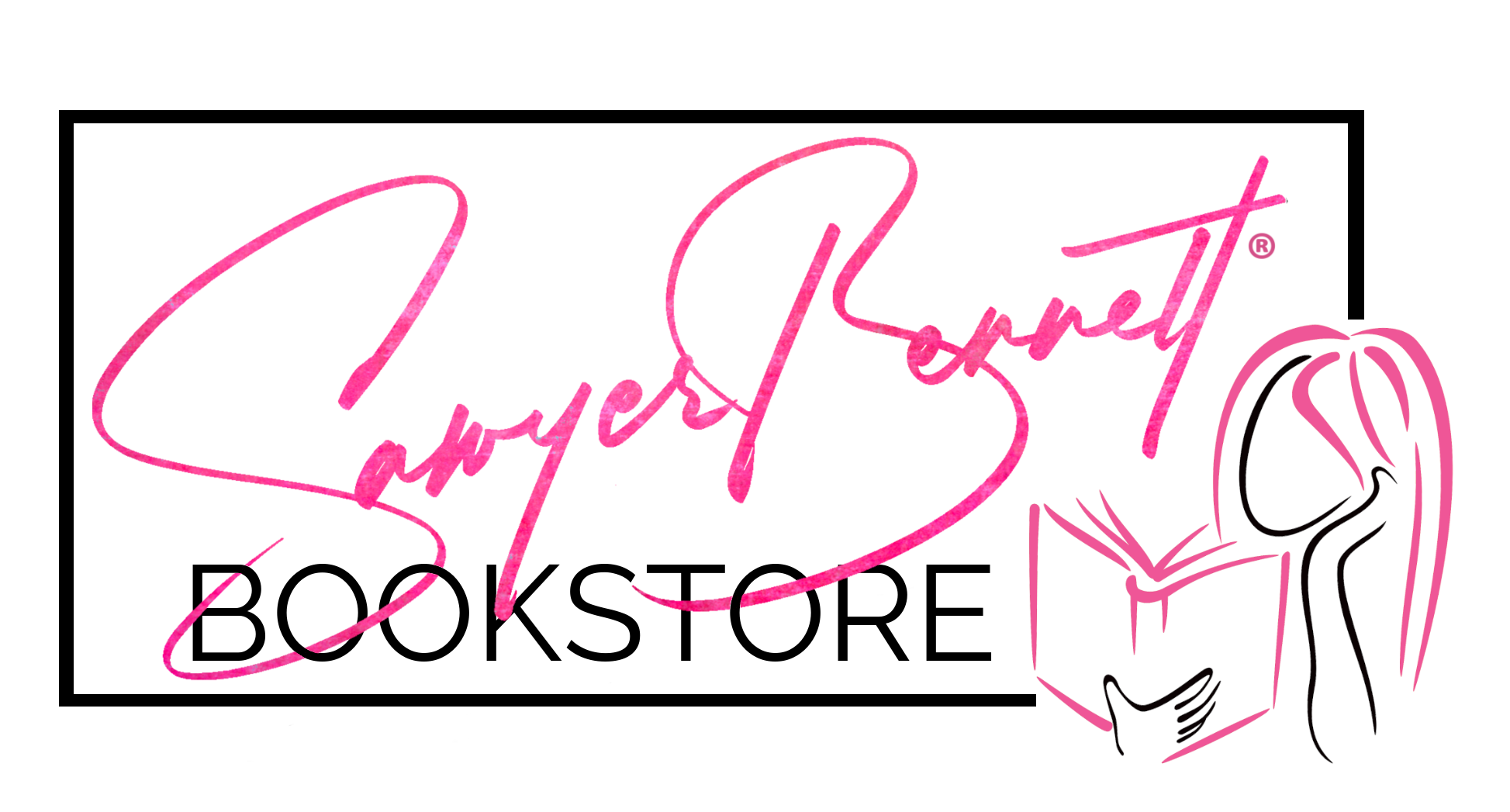“Stone.” Something slaps my arm. “Stone… wake up.”
“What?” I mumble, refusing to open my eyes. My tongue feels like it’s fucking glued to the top of my mouth.
“Your damn phone keeps ringing.” Female voice coming from the other side of the bed. Not all that surprising after a bender evening out.
I raise my head, a searing pain jolting through it. It’s dark and I’m disoriented, but I do hear my phone ringing on my nightstand.
Rolling that way, I nab it and squint to see who’s calling.
Dad.
“Fuck that,” I mutter, tapping decline.
Tossing the phone back on the nightstand, I close my eyes and try to will the pounding headache away. I had way too much to drink last night, so much so that I honestly have no clue who’s lying in my bed.
Nor do I care.
My phone immediately starts ringing again, and my eyes snap open.
“Turn the fucking phone off,” the woman whines grumpily, and I can make out her shadowy form pulling a pillow over her head.
I grab the phone, intent on doing just as she asked. It’s my father calling again, but it finally penetrates that it’s just past two a.m., so it has to be something bad if he’s calling me at this hour.
Hell, I’d probably think it was something bad if he called me in daylight hours too. He just doesn’t reach out at all.
Despite the headache and slight buzz, I make the choice to answer.
“Yeah,” I say into the phone, my voice thick with sleep and too much beer. I cough to clear it. “What’s up?”
“Oh God,” my father wails into the phone, and it’s so full of anguish that my stomach rolls.
I fly up from the bed, swinging my legs around and fumbling with the lamp. It lights up the room, and I’m vaguely aware of the cursing woman behind me in bed.
“What’s wrong?” I demand, but I’m not sure he hears me. My father is moaning piteously, crying and sobbing.
Just one name, over and over and over again.
Brooks.
My brother.
“Dad!” I yell, trying to get his attention—trying to talk louder than his sobs. “What the fuck happened?”
“Jesus Christ,” the woman snaps, and I glance back at her. “Can you take that call somewhere else?”
I’m normally an easygoing guy, but something life altering is happening. I’m coming off a drunk, and I have a father I barely talk to on the phone, crying about my brother. Some strange woman is in my bed—who I clearly brought home and fucked, seeing as how we’re both naked—and she’s telling me to go somewhere else.
“GET THE FUCK OUT OF MY HOUSE,” I roar, and no matter how loud that was, my dad’s crying is still somehow more clamorous.
The woman’s eyes bug out, and she scrambles off the bed, grabbing the sheet to cover herself. As she gathers her clothes from the floor, I give her my back.
“Dad.” He’s not responding, just out-of-control crying. “Dad… what’s wrong with Brooks?”
Nothing.
He says nothing. Only whimpers.
My heart rate is so jacked, I’m afraid I’ll stroke out. “Dad!” I scream at him, punching the wall and denting it. “Goddamn it. What’s wrong with Brooks?”
“Gone,” he keens. “Plane. Crashed.”
“No.” It can’t be. No fucking way. My heart twists, possibly tears in half.
My dad is sobbing again, and he sounds like a damn child. Completely useless, but I’m not without means to determine what’s going on. I snatch the remote from the nightstand, aim it at my thirty-two-inch TV on the dresser, and power it on. Because all I watch is ESPN, that flares to life, and I stare in horror at what looks like footage of a helicopter flying over… well, I’m not sure what.
It’s dark, but there are dozens of flashing lights. Police, ambulances, more fire trucks than I can count. And various chunks of something scattered about, blackened by fire.
It finally comes to me… I’m looking at an airport. I can see the runway lights, and my eyes focus not on what the reporter is saying but rather on the scrolling banner at the bottom.
“Pittsburgh Titans’ plane crashes upon landing at airport. Search for survivors continues.”
I stumble backward, vaguely aware that my bedroom is empty and the woman must have left. The backs of my legs hit the mattress and I sag onto it as I stare, disbelieving, at the screen.
My dad still cries on the phone. He says Brooks is gone.
Not dead, though. They’re reporting that they’re searching for survivors.
“Dad,” I bark into the phone, “have they found Brooks?”
“I don’t know,” he mumbles.
“The TV is reporting they’re looking for survivors,” I point out, turning up the volume so I can listen.
That seems to jolt him as he starts talking. “We’re watching too. The plane is destroyed. No one could have survived that. No one.”
My dad breaks down into sobs again, and I pull the phone away from my ear. I can’t stand to listen to him mourn Brooks when we don’t know for sure if he’s dead. There are ambulances out there. Rescuers searching.
He could have made it.
***
Numbness.
It’s what I feel as I sit in the front church pew next to my parents, staring blankly at my brother’s coffin.
It’s closed casket, of course. Most of the victims of the Titans’ plane crash had closed caskets or were cremated, since many were already so badly burned. Identifications were done through dental records and rapid DNA testing. It’s grisly information, but I know it because my dad asked those questions to the FBI agent assigned to oversee victim identification and felt the need to share it with the entire family via email.
I personally could have done without that information, but my dad wanted it, not to ease his mind in any way but so he could use the drama during his interviews with news stations. He may have lost a son, and I’m sure he’s grieving, but he’s also in his element with the spotlight on him.
It’s why he let reporters with cameras into the service, so they could record how much he’s suffering after losing his precious son. He sits on the other side of my mom at the end of the pew, near the aisle, so he can make sure everyone sees the pain weighing him down.
Sitting in between me and my father is my mom. Brooks was the light of her life—or so I’ve heard her say on many occasions—and she sits with shoulders hunched, tears streaming down her face.
I try to put my arm around her—some measure of comfort—but she doesn’t seem to notice. She merely murmurs over and over again, “My son… gone. My precious boy.”
The Episcopalian service is disingenuous, given that we’re not a religious family in any way. It’s only being held here because my father wants the maximum effect. My mom weeps through the entire service. The Episcopalian priest talks about Brooks as if he knew him well, but it’s obvious they’re prepared remarks—I recognize my father’s hand in all the ways the world will be dimmer without Brooks’s greatness. Then it’s a painful ten minutes while I have to listen to my father eulogize my brother in a manner I find offensive.
Of course, he lists all the accomplishments of his second but favorite son. How well he did in college, getting drafted to play professional hockey by the Pittsburgh Titans and how his star shone brighter than he ever knew possible. He talks about what a loving and devoted son Brooks was and that he will never suffer a loss as great as this one. In fact, he tells the captive audience—while looking straight into a news camera—that he’s not sure he has anything to go on for.
I’m a little prickly about my parents’ behavior, for sure. My brother was indeed a great hockey player and a good person, and I miss him so much. But those blindingly overarching compliments are nothing but a slap at me. My father never misses an opportunity to raise Brooks up and try to knock me down at the same time.
My eyes remain dry throughout the entire service, just as they’ve remained dry since the moment my father called me a week ago with news of the crash. Too many emotions pulling me in a dozen different directions to even process the finality of what’s happened.
I’m resentful of my brother, and my father has made me that way. Over the last few years, my father managed to single-handedly destroy my relationship with Brooks, and he’s apparently removed my ability to grieve or mourn his loss. I know that’s some psychological, twisted, fucked-up nonsense, but there you have it.
I’m relieved when the church service concludes. I would leave now if I weren’t a pallbearer for my brother’s coffin. So I do my duty and carry him to the hearse. I ride silently in a black sedan along with my parents to the graveside. The entire time they clutch onto each other and stare blankly ahead without even bothering to look at me.
Not once have they offered me any solace. Not even a hug when I arrived home here in Ithaca to be with the family at this terrible time. Not even an acknowledgment that I lost something too.
When we arrive at the cemetery, I help carry the coffin to the waiting grave. The priest and other mourners file in around chairs lined up in front of the casket for the family. I choose to stand at the outer edge of the crowd, counting down the minutes until this is over.
The priest offers a brief prayer, and my father has a dramatic breakdown during the words meant to comfort.
Just before the casket is lowered, people file by to lay red carnations on top. I may have been mostly estranged from my brother, but I knew him well enough to know he would hate this.
My mother flings herself on top of the coffin and wails, and my father capitalizes on the drama by grabbing her from a semi-faint. All the while, the TV cameras are rolling because my father invited the reporters to this part of the service as well. I’m sure he’ll watch the footage tonight to make sure they got the best angles on his grieving face.
It’s all more than I can handle right now, so I pivot to leave. The day is cold and the brown, frost-covered grass crunches under my feet. I don’t bother heading toward the sedan that brought me here but intend to walk out of the cemetery and pick up an Uber for a ride back to my car at the church. I have to get back to Cleveland as we have a game tomorrow, and I’ve missed too much ice time as it is.
I make it no more than a dozen paces from the crowd when I feel someone at my side. A hand slips into the crook of my elbow, and I glance down to see my Aunt Bethany. She squeezes my arm and does nothing more than walk along with me silently.
When we reach the main paved road, I stop because I know she’s not going to walk all the way out.
She tips her head back, and her kind blue eyes stare at me. “Are you sure you won’t stick around for the gathering at the house?”
The look I give her is one of gentle chastisement. “Why would I want to suffer that?”
Bethany’s smile turns sad. But it’s also understanding, because she, better than anyone, knows the mental abandonment I’ve suffered from my parents over the last few years. “Because you love your parents, despite the way they are, and you loved your brother more than anything, despite what your parents did to the two of you.”
She’s not wrong about that. Sometimes I wonder how I still have care in my heart for two people who don’t seem to have it in return for me. Deep down, I know my brother never wanted any of this and is not to blame. And yes, I loved him more than anyone in this world, just as much as I resented him.
“I can’t.” I glance back at the crowd for a moment and see that my father has managed to get my mom settled back in the chair. “This is probably the last time I’m coming home.”
She nods and sighs. “Then I guess I’ll just have to come visit you in Cleveland.”
“The door is always open for you.” I bend down and kiss her cheek before wrapping my arms around her in a bear hug.
While I forgive her for being my father’s sister, I also understand why she plays the middle ground. Regardless, she’s been a surrogate parent for me, and there’s not much I wouldn’t do for her.
Except stay.
“I love you.” I release her from the hug, and we stare at each other for a moment. “And I’m lucky to have you.”
“You always have me, Stone,” she replies, patting me on the cheek. She then turns and heads back to the grave site while I walk as quickly as I can toward the cemetery exit so I can leave this all behind.
***
Yawning, I rub my eyes. Only another forty miles to go until I get to my apartment in Cleveland. I chose to drive the five hours to Ithaca rather than fly for many reasons.
There was no connecting flight, and it would’ve taken me longer to fly than drive. I also didn’t want to be at my parents’ mercy for transportation, and I wanted my car available in case I needed to bail.
And admittedly… my brother just died in a plane crash, so I’m a little jittery about flying.
Given the emotion of the last week, the funeral services today, and the long drive home, I’m exhausted to the bone and starving as well. I can’t remember what food I have in my house, but I’m too tired to stop by the grocery store. I also know if I get home and there’s nothing there, I’m going to have to go back out.
The choice is fast food now, or do I take my chances and go home to empty cupboards?
Before I can make the decision, my phone rings. It’s a number I don’t recognize, but it’s from the Pittsburgh area code.
For a moment, I think about ignoring it, assuming it’s someone from the team to offer condolences. I know they’ve reached out to my parents on a few occasions offering to help in any way they can. My dad gladly accepted the organization’s offer to pay for the funeral expenses, even though I’m sure Brooks had insurance so that burden wouldn’t fall to them.
It was just another way for my dad to capitalize on the fame from this tragedy, proven when I saw a short interview he did with the local news about the generosity of the Pittsburgh Titans.
I connect the call, more to keep me awake during this last leg of my trip than anything. “Hello?”
“I’m looking for Stone Dumelin,” says a man with a deep timbre, unrecognizable to me.
“You got him,” I reply, trying to suppress another yawn.
“Stone… this is Callum Derringer.” That perks me up, and I sit straighter in my seat because Callum Derringer is a name everyone knows—former general manager of the Ottawa Cougars who was fired for failure to produce a winning team. “It’s not been released to the news yet, but the Titans have hired me as their new GM. I’m working closely with Brienne Norcross and a new coaching staff to put together a team to get back on the ice.”
I’m only momentarily shocked by this news. The plane crash was but a week ago, and many people are still mourning. We just buried my brother today.
But there’s a part of me that’s not surprised by the organization’s quick movement. I know the hockey industry well. While I might currently play in the minors for the Cleveland Badgers, I used to play in the majors. As a first-round draft pick, I went from college to the Boston Eagles where I played for a handful of years, even winning a Cup championship with them when I was twenty-three.
I understand that professional hockey is a for-profit industry, and without a team on the ice, everyone will lose millions. It’s not just the Norcross family—owners of the Titans—who will lose out, but also all the vendors, merchandisers, fans, and ticket holders. The city of Pittsburgh makes money off the brand and tourism. It’s an intricate web of codependency to keep everyone successful, and until the Titans get back into the game, everyone loses.
“What can I do for you, Mr. Derringer?” I’m assuming this has something to do with Brooks, although I don’t understand why he’s calling me rather than my father. He’s made himself the mouthpiece for our family’s tragedy.
“We’d actually like to extend you an offer to join the team. We’ve talked to the GM of the Badgers, and we’ve got a deal worked out. My understanding is you’re not represented right now, so I’m coming to you directly.”
I almost drive off the road. I lost faith long ago that I’d ever make it back up into the professional league, which is why I don’t have an agent representing me right now. I had accepted that I would retire as a minor league hockey player and was probably looking at doing that sooner rather than later.
“You had a tremendous career with the Boston Eagles,” Derringer continues, reciting a list of my statistics. “You were the first line left-winger, and you have a Cup championship behind you.”
Fuck, that was so long ago. Well actually, only four years, but it seems like a lifetime. “I’m not that player anymore, Mr. Derringer. I’m settled into the minors.”
There’s a long pause, as if he’s attempting to gather his thoughts. When he shares them, he pulls no punches. “You’re the first player I’ve talked to with these offers who wasn’t jumping for joy. It’s almost as if you want to stay where you are.”
I imagine my lack of enthusiasm is shocking, but I truly can’t find anything to be excited about. Maybe it’s an indication of how far I’ve sunk into mediocrity that I can’t even find simple joy in the prospect of something better.
I don’t respond to his statement, instead asking a question. “Why me, and is this offer in any way because Brooks played for you?”
Because fuck if I’m going to be the next big headline for the Pittsburgh organization to show how magnanimous they are.
“It was a consideration,” he admits bluntly. “But only to the extent we weren’t sure if losing your brother would be an emotional barrier that would prevent you from playing. Our desire to have you on our team has nothing to do with your relation to Brooks but rather your talent and potential.”
“What exactly is it you are offering, Mr. Derringer?”
“Please, call me Callum,” he says genially. “Here are the terms of what we’re willing to offer.”
I settle back and listen to everything he has to say. I believe him when he reiterates that they’re making this offer because they think I can make a major contribution to the team.
Still, at the end of the conversation, I’m not overly moved.
“I’ll have to think about it,” I say when he finishes. “When do you need an answer?”
“Twenty-four hours,” he replies. “Otherwise, the offer goes to the next best left-winger on our list.”





